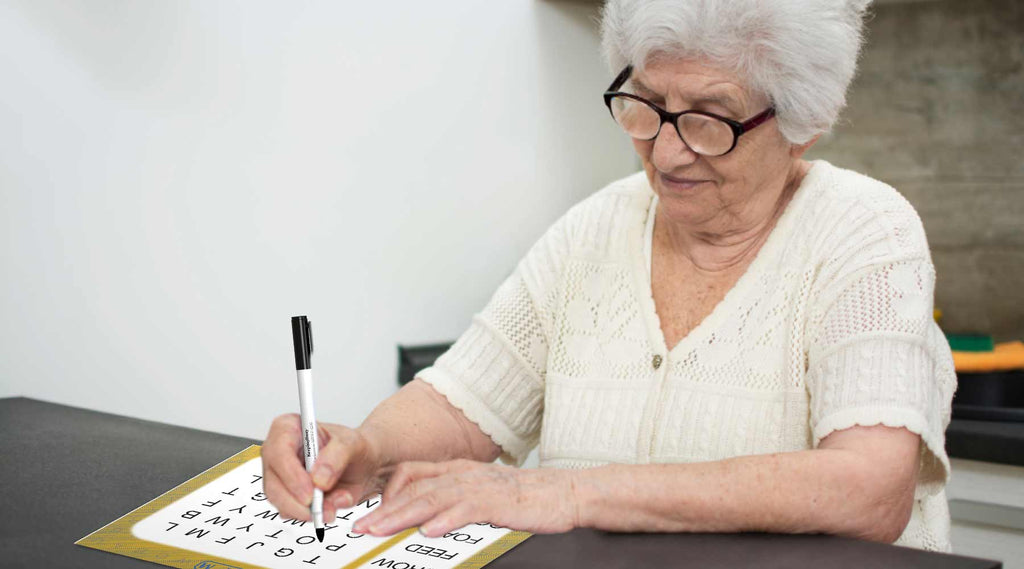
We are big proponents of using the Montessori approach to help people with dementia. Research has shown that Montessori based activities for people with de mentia produce more positive effects as measured by increased lengths of active participation and enjoyment than regular activities. Montessori based dementia programming has also been shown to decrease behavior such as agitation and social withdrawal and also lower the levels of fear, anger and anxiety experienced by persons with Alzheimer's and dementia.
We teach this Montessori based programming in the two day “DementiAbility Methods: The Montessori Way” workshop, and all of our activities are designed to follow the Montessori principles.
So what exactly are these principles? In a nutshell, here they are…
- Independence
- Choice
- Demonstrate
- Familiar materials
- Meaningful
- Adapted environment
- Sequence
- Simple to complex
- Procedural memory
- Error-free
These principles provide a framework that we can use when we are living with and helping people with dementia to ensure that our actions are supportive and effective.
It has been said that “activities comprise the stuff of everyday life”, activities are the “things we do”. For all of us, doing activities successfully support and build on everyday life. It is not simply having something to do that is important. It is having something meaningful or purposeful for us to be involved in.
Being engaged in meaningful activity allows us to meet some of our most basic needs, such as socializing, a feeling of accomplishment, a sense of purpose and play, as well as our need for cognitive and physical stimulation. An activity can be almost anything. Sitting quietly with someone, eating, watching a rerun of a favorite sitcom, putting on a jacket or going for a walk - these are all activities for patients.
The goal of an activity is in the doing, not in the activity itself. It’s about the process not the end result. About playing the game not about keeping score.
As dementia progresses, individuals lose the ability to plan, initiate or carry out activities. They need us to help them find something meaningful or purposeful to be involved in. These principles help us in creating meaningful activities for people living with dementia out of every day life.
As you look down the list of the principles, you can see that they aren’t complicated or unusual, but it is important to understand the significance of each one. In this series of blog posts, we will define and explore each of these Montessori dementia care principles starting with the first principle, “Independence”.




